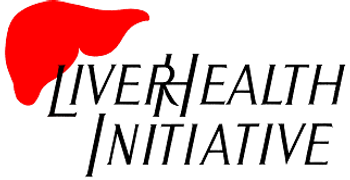
Yale Medicine's New Liver Disease Care Model Serves as Inspiration to Transform Prevention and Harm Reduction

The Liver Home, a new patient-centered liver disease care model, is being introduced by Yale Medicine, Yale New Haven Health System Digestive Health Service Line.
The Liver Home, a new patient-centered liver disease care model, is being introduced by Yale Medicine, Yale New Haven Health System Digestive Health Service Line. This new program will prioritize care coordination of patients with liver cirrhosis and associated complications, focusing particularly on addressing behavioral health needs that will decrease utilization of ER visits and hospitalizations.
Liver cirrhosis is a late stage consequence of a number of liver-related diseases including viral hepatitis, drug/alcohol misuse and abuse, fatty liver, and obesity. Patients with cirrhosis effectively have permanent scarring of their liver, thereby reducing its functional capabilities and increasing risk of associated complications. There is no cure for severe cirrhosis, apart from liver transplantation which is a costly and high-risk surgical intervention. As such, the Liver Home model will implement features such as remote patient monitoring, a social services linkage program, and addiction treatment to upscale and better utilize outpatient resources. Patients will have improved access to care and management of their diseases in order to improve their overall health outcomes. More details about this new and integrated approach are available
The Liver Home model illustrates the importance of addressing liver disease management in an all-encompassing way. Similarly, we should address liver disease prevention or mitigation of risk in the same manner. It's not enough for us to expand screening recommendations for liver related diseases like fatty liver and hepatitis, when they pose such an enormous risk to population health. Why? Because people often have no concept of how important their liver is, or how easily it can be damaged. As such, they're unaware of their risk status and perhaps unmotivated to seek any testing or treatment.
Innovative thinking - as was used to design the Liver Home model - should be applied to preventive education measures as well. We need to have an integrated system of educating patients about their liver, so that they are empowered to address their risk behaviors, seek testing, and comply with treatment recommendations. The Liver Health Initiative prioritizes liver health education as an essential component of preventing and addressing liver related diseases. Making complex liver information personal, relatable, and memorable is engaging for patients (and the public). Engaged patients are better health advocates for themselves, and able to make actionable changes for their own health care and management.
LHI has created a variety of educational materials for different audiences that have reimagined the liver and liver health in a non-threatening manner. These tools can easily be integrated and adapted for health education curricula that focus on topics such as nutrition, physical education, alcohol and substance abuse, and other topics promoting health and wellness. More information and samples are available at
As liver related issues become increasingly prevalent, it's important that we take a more concerted approach to address prevention - in the same way we're trying to address and improve disease management. His new program will prioritize care coordination of patients with liver cirrhosis and associated complications, focusing particularly on addressing behavioral health needs that will decrease utilization of ER visits and hospitalizations.
Newsletter
Stay ahead of emerging infectious disease threats with expert insights and breaking research. Subscribe now to get updates delivered straight to your inbox.
































































































































